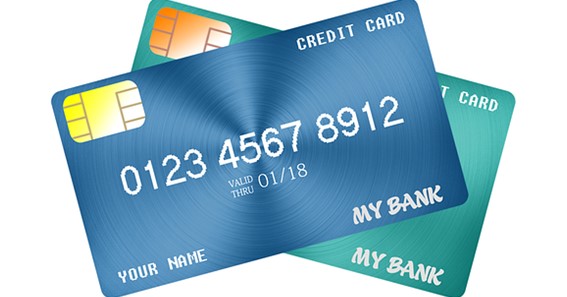Whether you want to pay without cash or check, debit and credit cards allow you to do so conveniently. These payment modes are acceptable in almost similar places. But, the similarities do not go beyond this.
The notable differences between the two come from where the money originates and what it may cost. Debit cards usually draw funds from a checking account. Credit cards employ a line of credit for purchase charges.
So, using a debit card means spending money from your own funds. On the other hand, using a credit card implies that you’re borrowing money, which you must pay back to the card issuer as agreed. The payment often includes some interest. Statistics indicate that credit cards account for 28% of all payments.
Our article below discussed more differences between the two modes of payment. Once you learn about each type, you can make the best decision about what can work for your situation.
Let’s delve in.
Click here – 5 Budget-Friendly Ideas for Creating a Cozy Bedroom
Differences Between Credit Card and Debit Card
1. Interest Rates
The most significant advantage of using a debit card for your purchases is that you won’t create debt, and no interest accumulates. So, this payment mode works best for anyone wishing to stay debt-free. A debit card will help free you from the heavy burden of interest that comes with credit cards.
With credit cards, not unless you plan to pay off the balance monthly, the charges on each spending accrue interest, which may cost you a lot in the long run. High-interest rates can push you deeper into debt if you allow the unpaid amount to rise.
2. Building Credit History
How you use your credit card often reflects on your credit report. Positive credit reports will originate from low credit utilization ratios and on-time payments. Negative reports come from late payments or delinquencies.
Your credit report details are often used to calculate your credit scores. Responsible people who spend wisely always will boost their scores with a history of timely payments.
You’ll also realize that those who attain the excellent 850 credit score usually maintain their card balances low and in line with their card limits. So, this is one secret if you’ve always wondered how to get an 850 credit score.
If you’ve made late payments on your credit card and have a poor credit history, all is not lost. There are cheap credit repair services that can offer reliable and affordable credit repair. This is a top-rated credit repair that helps you attain a credit fix. The credit repair professionals hold your hands on the journey to achieving an excellent credit score.
So, once you seek credit repair services, you will benefit from credit fix. The professionals will help you to:
- Remove collection account from credit report
- Avoid prepaid credit cards that report to the credit bureau
- Attain great credit scores
- Move towards the perfect credit score possible
- Fix credit review
- Remove paid collection account from credit report
Contrary to credit cards, you won’t build your credit history when using debit cards. Remember, you can only build good credit when you demonstrate to lenders that you can repay the borrowed money responsibly.
So, when you spend with a debit card linked to your bank account, you don’t have the chance to do that. A debit card alone cannot help you establish or build your credit history.
3. The Costs of Spending
It also helps to know that with debit cards, you must be careful how you spend. Otherwise, you may spend more than you have in your account. This will result in overdraft fees, which can get costlier extremely fast.
Thus, you need to keep track of your available funds so that you don’t spend what you do not have. That way, you will always play safe. Remember that disputed charges are more complex to resolve when using a debit card than with a credit card.
Ensure you maintain a running balance of your checking account. This ensures you don’t end up overdrawing your account accidentally. You can check in with your bank to pay overdrafts.
With credit cards, it’s easier to spend the money you don’t have and end up detached from your spending. If not watchful, you can easily fall into endless debts. You may start to miss your payments and harm your credit rating. You can hardly borrow money in the future with a negative credit score.
If you keep missing your payments, you may be charged late fees, and together with interest on an unpaid balance, the costs may add up faster. Besides, the more you miss payments, the further damage you attain on your credit.
4. Rewards and Benefits
Many credit cards offer users rewards such as points that you can redeem into cash for benefits like store discounts or travel. You can also employ the credit card benefit practically everywhere, including overseas.
Credit cards can also benefit you with financial backups during emergencies. Such instances may include hospitalization cases, unexpected job losses, or car repair. You can even use the credit to pay bills, then pay off the balance monthly.
You can boost the reward points if you keep paying off the monthly balances. Using a credit card responsibly can quickly increase your credit score.
A good score will benefit you in the long run by allowing you to qualify for loans with lower interest rates. This includes a mortgage or personal loans, or even new credit cards.
With debit cards, there are no rewards. Not unless you have a reward checking account, you won’t earn points or cash back on your purchases. Such rewards can save you money based on how much you manage to redeem. So, you could miss out on such attractive benefits with debit cards.
However, even though debit cards don’t earn points for every purchase, you may get benefits in exchange for some transactions. For instance, standard debit cards usually have a round-up feature offered to users. They allow you to transfer small amounts of money to your savings account. This is a feature you can’t find with credit cards.
5. Fees
Most frugal consumers prefer using debit cards because there are often little to no fees associated with them. Charges may only arise if a user spends more than what is in their account. At this point, you incur an overdraft fee.
Besides, debit cards won’t incur the annual fees as it is with credit cards. But, you may pay some fees to have a checking account. Such can include:
- Monthly maintenance fees
- Returned-item fees
- Foreign ATM fees
You will pay foreign ATM charges using your debit card at a different bank or financial institution’s withdrawal machine.
Also, the no-fee benefit doesn’t warrant the prepaid debit cards. This form of debit charges activation and usage fees, plus other costs.
On the other hand, credit cards often charge things like:
- Late payment fees
- Annual fees
- Monthly interest fees
- Over-limit fees and several other penalties
Key Takeaways
Both credit and debit cards offer convenience to consumers. They eliminate the need to carry real cash. However, they have notable differences.
Everyone needs to know the differences between these two. That way, you can never regret your decision about a specific payment mode.
The main difference between a debit and a credit card is where the cards draw the money. A debit card draws it from your bank account, while a credit card will charge it to your credit line.
A debit card is your best bet if you prefer maintaining a tight rein on your finances. And, if you want to build your credit score to benefit from low-interest loans, then go for a credit card.
Just ensure you observe timely payments. No matter what you choose, ensure you know the fees associated with the particular account. Our discussion above has given important details you need to start on the right foot.
Click here – Do’s And Don’ts of Sclerotherapy





